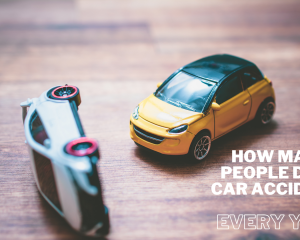The U.S. has thousands of injuries every year due to defective or dangerous products. "Product liability law" states who is responsible for such injuries. Injury victims often find that this set of rules makes recovering damages easier. Manufacturers and sellers are liable for defective products they place in the hands of consumers. In the event of a product defect that causes injury, all sellers in the distribution chain are responsible. As a rule, the law requires that products meet the ordinary expectations of their consumers.
When a product is defective or dangerous, it does not meet normal consumer expectations. There is no federal law governing product liability. The theory of negligence, strict liability, or breach of warranty are typically applied to product liability claims under state law. Furthermore, each state will have a set of commercial statutes modeled after the Uniform Commercial Code, containing rules governing product liability.
In this article we discuss key points you'll need to know if you've been injured by a dangerous product and what you'll need for product liability claims.
Common Product Liability Cases in Florida
No matter if the claim is based on strict liability, negligence, or another theory, a consumer will need to prove one or more of these three types of defects have occurred. They include manufacturing defects, design defects, and marketing defects, also known as warnings being omitted. It is also necessary for the consumer to prove that the defect is what caused their injury. It means that if there had been no defect they would not have been injured.
A manufacturing defect occurs when there is an issue with how an item was created. In some cases, manufacturing defects can be caused by errors on the assembly lines at the factory, which may result in a different product than the rest of the line. For instance, an accident resulting from malfunctioning brakes might have been caused by an error in manufacturing that particular set of brakes.
Manufacturing Defects
Occasionally, a whole line of products is faulty, making them unreasonably hazardous. Hence, no mistakes were made in the manufacturing process. Those who made the blueprint or specifications for the product may be held accountable for failing to anticipate potential risks. If a vehicle is prone to rolling over, perhaps it is due to a design defect. It varies from state to state how one establishes a design defect, and in general, a victim will need to retain an experienced attorney. In showing that a design was unsafe, it may be necessary to demonstrate that a safer alternative could have been made.
Marketing Defects or Failure to Warn
A product's liability claim for a marketing defect can be based on inaccurate instructions or warnings about the product's underlying risks. Failure to warn about obvious risks, such as the fact that a knife is sharp or that you can fall off a ladder, will not make manufacturers liable. Pharmaceuticals are often the subject of this theory, since drug manufacturers may not list the side effects of their drugs on their labels. Also, it is possible for products to contain chemicals that are unsafe. In order for the victim to claim compensation, they must have been injured in consequence of a risk not disclosed and use the product in the way that it was intended or anticipated.
Breach of Warranty
Whenever a product does not meet the terms of its warranty, a victim may be able to file a claim on the basis of a breach of express warranty. You can find the warranty on a product's packaging or labeling, or in its advertising or manual.
An implied warranty claim might arise, even if the manufacturer or distributor does not offer one if your state's law provides one for the type of product in question. Usually, this warranty will consist of an implied merchantability clause which guarantees that the product is fit for the purpose for which it is purchased.
Usually, when a seller knows a buyer will use a product for a particular purpose, an implied warranty of fitness for that purpose may apply. Warranty coverage of this type is uncommon, and it is based on the customer's interactions with the vendor.
What to Do If Injured By a Defective Product?
The right steps must be taken if you are injured by a defective product in order to protect your legal rights. You must do the following:
Get Medical Care
If you have been injured by a defective product, your first priority should be to seek medical care. Untreated injuries can lead to further problems. You should treat your injuries right away, then go to the emergency room or a doctor for proper treatment. Document the extent of your injuries caused by the defective product while also taking care of your health.
Document and Preserve Evidence
You need your medical records to document your injuries, which is important for your claim. In addition, if you intend to take legal action, you will need to demonstrate that the defective product caused your injury. If possible, make sure you preserve the product. Make sure nothing is thrown away. Photograph your injuries, the product, and the area where the incident happened. Include the time, date, location, and other details of what happened. Gather receipts and information about the warranty or registration of the product. Look up any recalls on the Consumer Product Safety Commission website.
Seek Legal Advice
After your injury, you should contact a personal injury attorney as soon as possible. A good personal injury attorney will inform you of your rights and provide you with information regarding your case so that you don't make mistakes that could harm your case in the future. Having an attorney on your side can enable you to take action quickly, increasing your chances of success. Furthermore, your attorney will assist you in gathering the appropriate evidence, records, and other documentation to support your claim.
Figure Out What Kind of Case You Have
In order to determine the grounds upon which you will sue, your attorney will help you identify the type of case you have. As mentioned above, defective products are classified as those with manufacturing defects, design defects, or inadequate warnings.
Identify Negligent Parties
Identification of each party responsible for the product liability case will be extremely important. Anyone involved in the product's design or sale, whether a manufacturer, wholesaler or distributor, may be liable for your injuries. You may need the assistance of your attorney to identify all parties involved in your injuries, as some may be more liable than others.
Calculate Damages
You can determine how much damages you are entitled to receive from your personal injury attorney. Compensation can be provided for medical bills incurred, future medical care, mental and emotional distress, and pain and suffering. Also, if you missed work because of your injury or if your ability to work has been affected, you may be eligible for compensation.In addition to helping you understand what to expect, your attorney will put together the right legal strategy for you to get the compensation amount you deserve.
How Do Product Liability Claims Work in Florida?
A common defense in product liability actions is that the plaintiff has failed to adequately identify the manufacturer of the product. It is necessary for a plaintiff to identify the party(ies) responsible for manufacturing or supplying the product.
This rule has an exception, which is called the "market share liability" exception, which applies to defective pharmaceuticals. When the plaintiff cannot identify which pharmaceutical company supplied him or her with the drug, each manufacturer will be held liable for a percentage of the sale.
The manufacturer might also claim that the plaintiff altered the product substantially after it left their control, which in turn caused the plaintiff's injury. Another possible defense is that the plaintiff misused the product which caused the injuries alleged.
Should You Hire a Product Liability Attorney in Florida?
In the event that a defective product has caused you to harm in any of the ways mentioned above, you should speak with an attorney about seeking compensation. As a result of defective products, you may suffer various damages such as medical bills, lost wages, and mental anguish. A product liability claim can compensate you for these damages.
Taking legal action over a defective product requires you to speak with a qualified lawyer. It is not advisable to go to just any lawyer. In product liability cases, a product liability lawyer is essential since there is a great deal of specific knowledge involved. A prospective product liability lawyer should also be able to tell you what types of cases he or she has handled. Look for a success rate with lawsuits involving details similar to yours, such as injuries, damages, the type of product, defects, etc. A good lawyer can take care of details such as investigating and evaluating your defective product accident, negotiating with the insurance company, and other important matters.
If you've been injured by a defective product you should contact 1-888-DOCS4PI as soon as possible. Our medical staff is prepared to treat your injuries and can refer you to legal representation if you are looking to take legal action.





